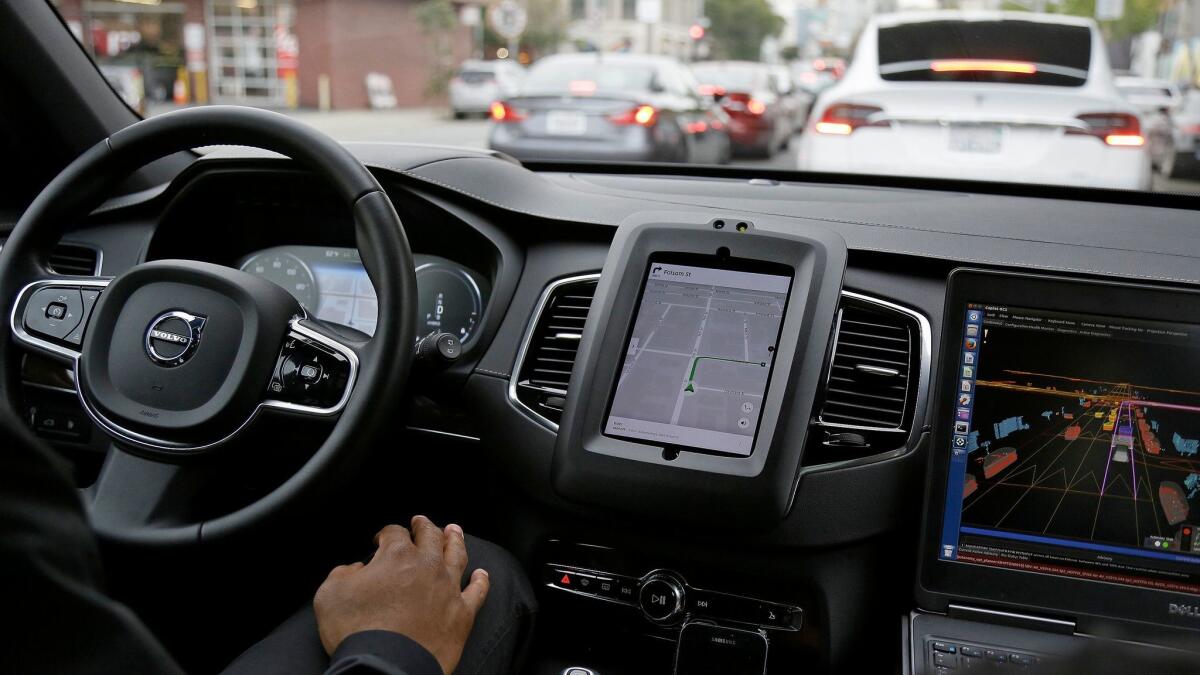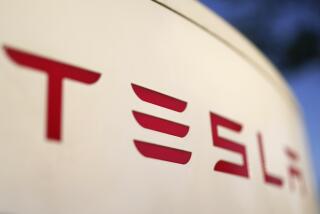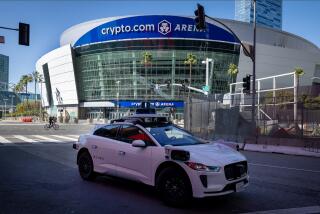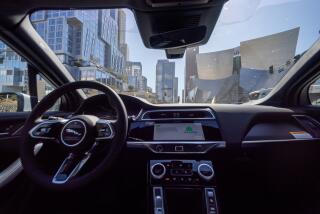Waymo seeks court order to stop Uber from using self-driving-car secrets

Waymo, the company that was formerly Google’s self-driving-car division, on Friday sought a court order to stop Uber from using trade secrets allegedly stolen by a former Waymo employee who took a job with the ride-hailing firm.
The preliminary injunction, filed in U.S. District Court, seeks to temporarily prohibit Uber from “accessing, using, imitating, copying, disclosing, or making available to any person or entity Waymo’s” trade secrets. The filing requests a hearing occur on April 27 before Judge William H. Alsup.
When reached for comment, Uber referred The Times to a statement it had issued a month earlier, describing Waymo’s legal actions as a “baseless attempt to slow down a competitor and we look forward to vigorously defending against them in court.”
Waymo last month sued Uber, alleging that former Waymo employee Anthony Levandowski downloaded more than 14,000 highly confidential and proprietary files shortly before his resignation from the company in January 2016. Levandowski went on to found self-driving-truck startup Otto, which was acquired by Uber in August of that year for $680 million. Levandowski now heads Uber’s self-driving-car division.
Waymo, which is a subsidiary of Alphabet Inc., alleges that Uber’s self-driving-vehicle program is now using its proprietary technology.
“Competition should be fueled by innovation in the labs and on the roads, not through unlawful actions,” a Waymo spokesperson said in a prepared statement. “Given the strong evidence we have, we are asking the court step in to protect intellectual property developed by our engineers over thousands of hours and to prevent any use of that stolen IP.”
The lawsuit filed last month seeks a jury trial, monetary damages and permanent injunctive relief.
And though it could take months or years for the case to go to trial, a preliminary injunction could have wide-ranging and more immediate effects, potentially halting Uber’s development of its self-driving-car technology and taking its existing self-driving cars off the road. The company has been actively testing its self-driving vehicles in Pennsylvania and Arizona. Uber on Wednesday got permission to test self-driving cars in California.
Technology companies and automakers are racing to take self-driving vehicles into the mainstream. The lawsuit and a potential preliminary injunction could make it harder for Uber to get there first.
“The world is going to go self-driving and autonomous,” Uber Chief Executive Travis Kalanick said in an interview with Business Insider last year when the company was ramping up its self-driving-car development. “So if that’s happening, what would happen if we weren’t a part of that future? Then the future passes us by basically, in a very expeditious and efficient way.”
Twitter: @traceylien
ALSO
Volkswagen pleads guilty in U.S. diesel emissions scandal
Robot cars — with no human driver — could hit California roads next year
If you like cars, not trucks, it’s a good time to buy







